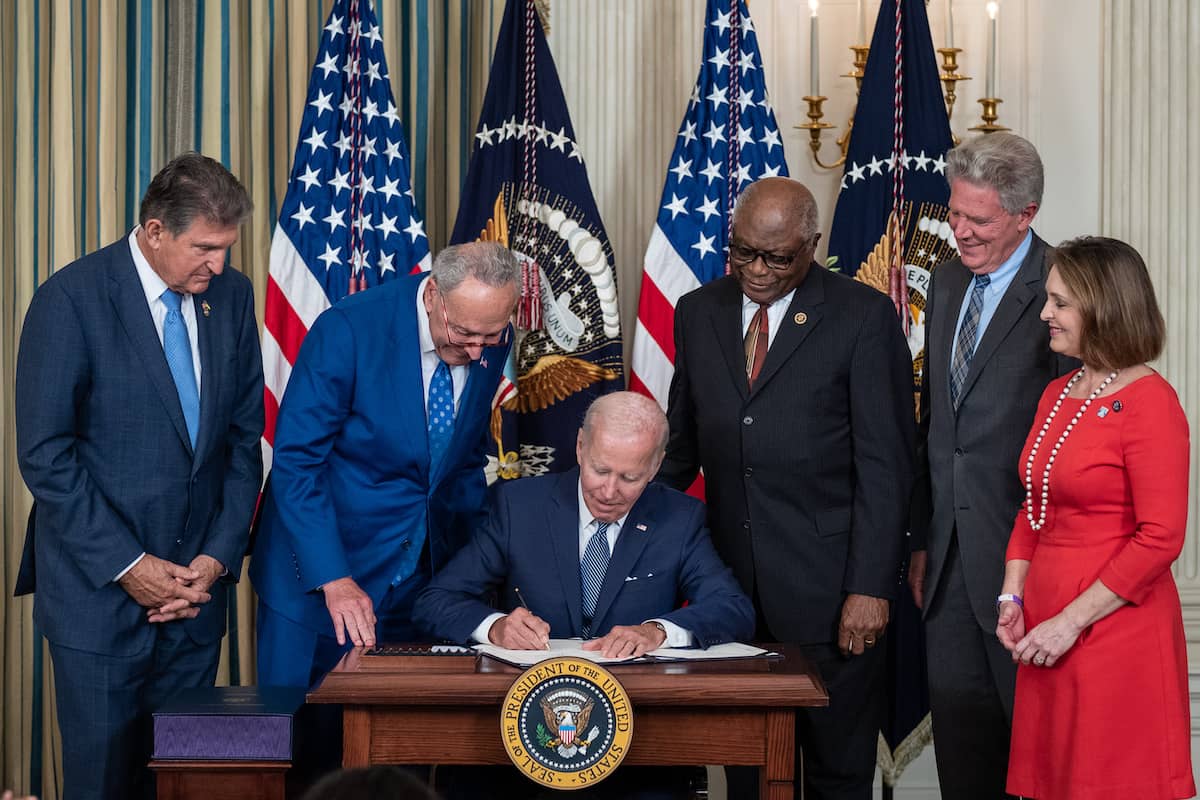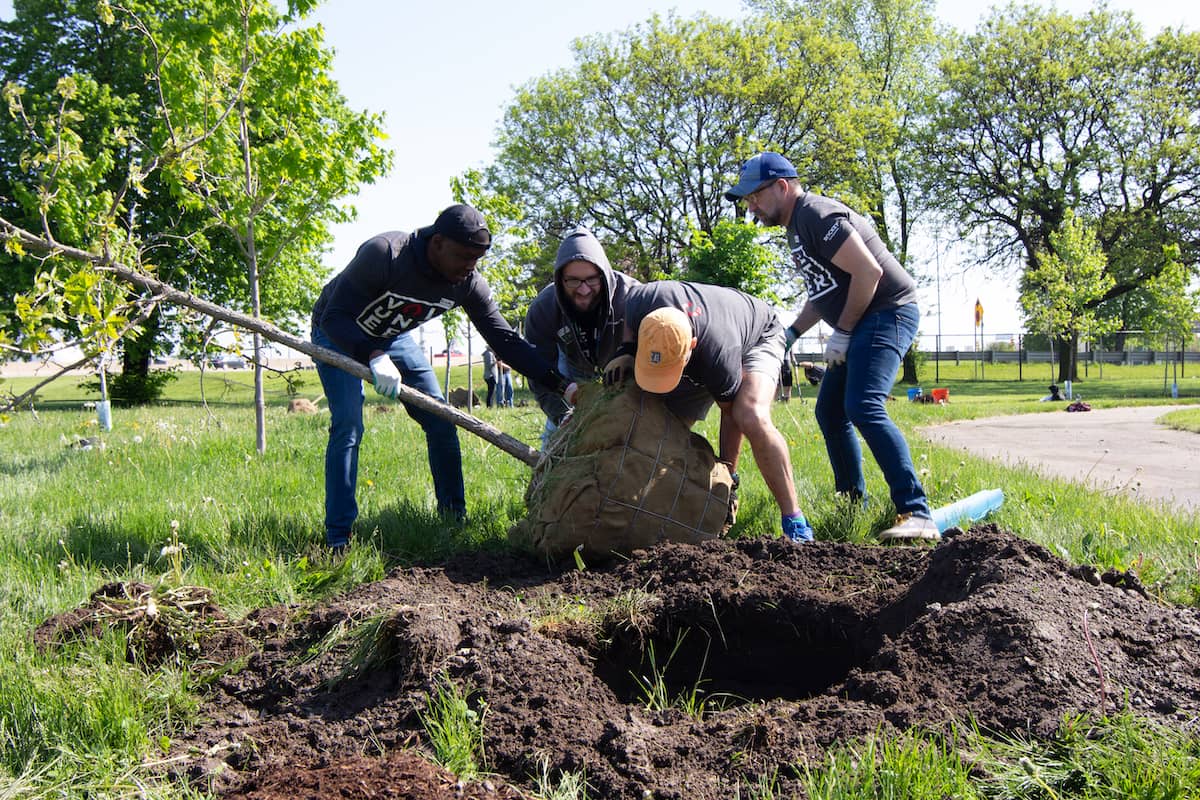ON AUG. 16, President Biden signed into law the Inflation Reduction Act of 2022, the most comprehensive climate legislation ever passed by Congress.
The historic legislation invests over $5 billion in forest-related provisions on both public and private lands, maximizing the power of our forests in the fight against climate change while simultaneously advancing equity. With $1.5 billion in funding for the U.S. Forest Service’s Urban and Community Forestry Program — the largest-ever investment in the only federal program for expanding and maintaining the health of urban tree canopy — this legislation will transform communities by creating jobs, bolstering local economies and saving lives.

Photo Credit: The White House / Twitter
But the wins don’t stop there: The Inflation Reduction Act also contains $450 million in voluntary incentives for historically disadvantaged private forestland owners; $700 million in Forest Legacy grants to permanently conserve and restore wildlife habitat and recreational areas; more than $2 billion in wildfire risk reduction funds; funding for wood products innovation and low-carbon built environment incentives; and much more. This legislation invests in science-based programs that work, helping to create a safer, healthier, cleaner place for us all to call home.
American Forests has been advocating for robust funding for these crucial programs for years; the organization’s leadership in coalitions, such as the Forest-Climate Working Group, Sustainable Urban Forests Coalition, 1t.org US Chapter, Trees for Community Recovery and others, has helped bring a focus on forestry to the forefront of national policy conversations. There’s a lot of work to do to implement the Inflation Reduction Act, but this momentous passage marks a new day for forestry in the United States well worth celebrating.

Photo Credit: Cokko Swain